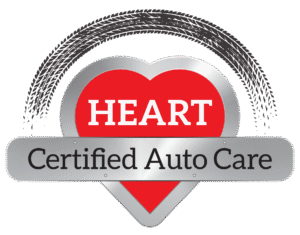Best Practices: Ford Mustang Maintenance in Northbrook

Owning an iconic sports car like a Ford Mustang is a dream come true for many enthusiasts. However, reaching peak performance and enjoyment relies on more than flashy looks. Proper maintenance is vital to keep your Mustang running smoothly for years and delivering that visceral thrill behind the wheel.
Luckily some simple best practices go a long way, no matter if you tear up backroads for fun or cruise around suburban Northbrook.
Follow Ford's Recommended Maintenance Schedule

While every driving style differs slightly, Ford engineers provide maintenance schedules optimized to match Mustang components and systems. Adhering to factory recommendations helps prevent premature problems and protects your investment.


- Oil and filter changes every 5,000-7,500 miles flush out metal shavings and dirt to maintain free-flowing oil pressure.
- Scheduled cabin air filter changes every 30,000 miles to keep the ventilation system breathing freely.
- Spark plug replacements every 100,000 miles ensure efficient combustion.
- Regular inspection of belts, hoses, and fluid levels catches little issues before they become big headaches down the road.
Use Top Quality Motor Oil and Filters
Oil keeps all the metal parts churning smoothly inside your Mustang’s muscular engine. Think of oil like the blood flowing through the engine’s veins and arteries. Just as our bodies need healthy blood, your engine needs high-quality oil to prevent problems.
Ford says Mustangs today should use a special type of thin oil that protects and cleans better than old-fashioned motor oil. Using the manufacturer-recommended oil keeps those hundreds of galloping horses under the hood running cool and strong for years.
It’s also key to use the best oil filter. Oil filters catch all the tiny dirt particles floating around that can grind down the high-precision parts and ruin the smooth ride.
Inspect and Replace Worn Parts
- Pay attention as your car rolls down the road. Do you feel a slight wobble coming around curves that didn’t used to be there? That may signal loose suspension parts needing tightening to restore solid handling.
- Stand on the brakes hard. Get some brake vibration or squealing? The rotors that stop your wheels may now have hot spots or grooves requiring replacement to prevent longer stops.
- Check for tiny leaks leaving drops in the garage that point to aged seals drying out. Little leaks tend to get bigger over time. Catch drips early before it becomes a spill.
Pay Attention to Unexpected Noises or Leaks
Cars give hints about brewing issues through sounds or leaks long before problems leave you stranded.
Each fluid type points mechanics toward issues in that system – coolant leaks mean future overheating risk, oil drips reduce internal lubrication and accelerate wear, and transmission fluid marks critically low function.
Ford Mustang Ownership Realities in Northbrook
Choose a Reputable Northbrook Mechanic You Can Trust
Getting to know a qualified technician for your Mustang’s specialized needs provides peace of mind. Seeking mechanics with Ford training and Mustang experience ensures your tech understands these ponies inside and out. At HEART Auto Care, we service all makes and models with ASE-certified technicians. As fellow Chicagoland drivers, we know how rough our Midwest weather can treat even the toughest vehicles.
Call the team at HEART Auto Care to schedule your Mustang’s next pit stop at (847) 498-0505.







